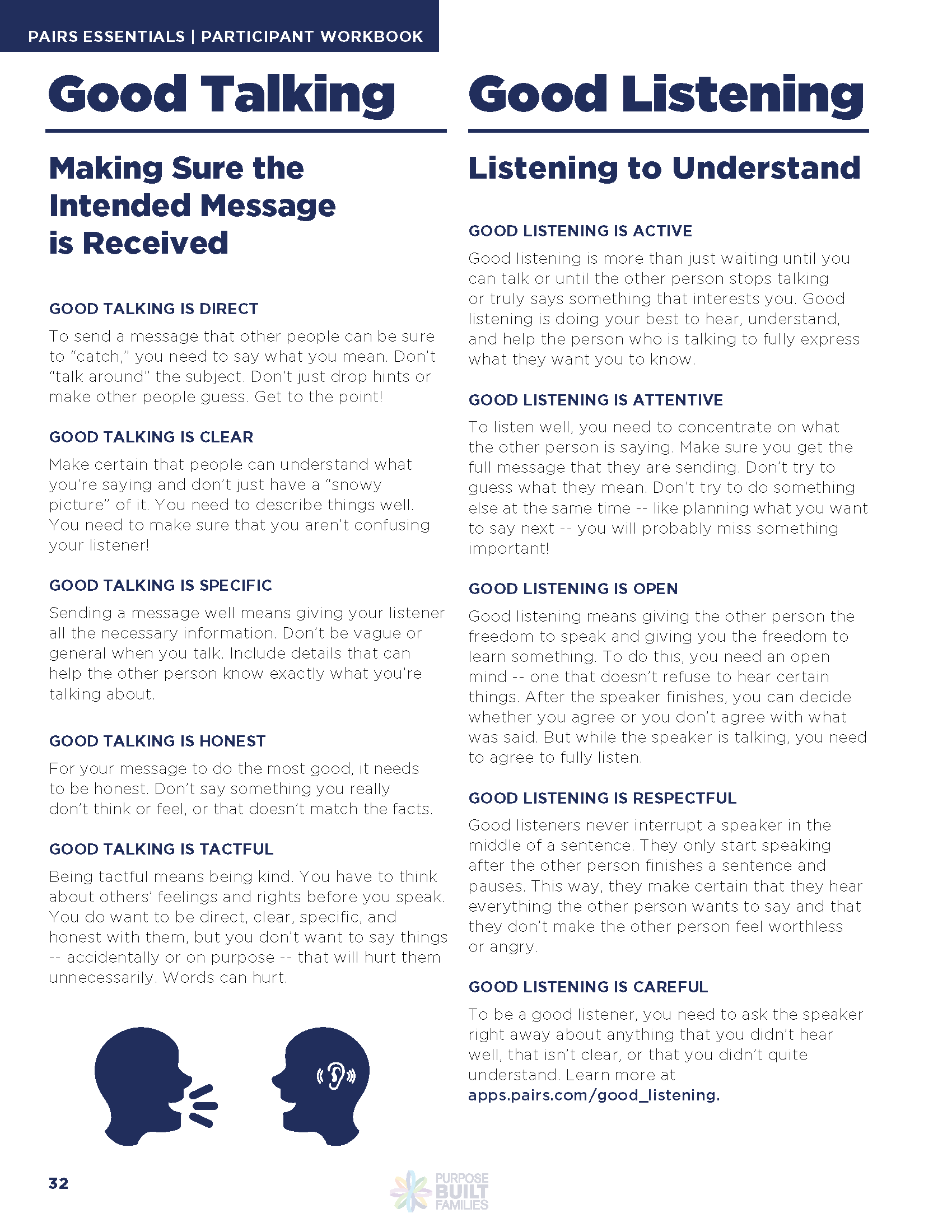Good Talking is Making Sure the Intended Message is Received
Good talking is DIRECT
To send a message that other people can be sure to “catch,” you need to say what you mean. Don’t “talk around” the subject. Don’t just drop hints or make other people guess. Get to the point!
Good talking is CLEAR
Make certain that people can understand what you’re saying and don’t just have a “snowy picture” of it. You need to describe things well. You need to make sure that you aren’t confusing your listener!
Good talking is SPECIFIC
Sending a message well means giving your listener all the necessary information. Don’t be vague or general when you talk. Include details that can help the other person know exactly what you’re talking about.
Good talking is HONEST
For your message to do the most good, it needs to be honest. Don’t say something you really don’t think or feel, or that doesn’t match the facts.
Good talking is TACTFUL
Being tactful means being kind. You have to think about others’ feelings and rights before you speak. You do want to be direct, clear, specific, and honest with them, but you don’t want to say things -- accidentally or on purpose -- that will hurt them unnecessarily. Words can hurt.
Good Listening is Listening to Understand
Good listening is ACTIVE
Good listening is more than just waiting until you can talk or until the other person stops talking or truly says something that interests you. Good listening is doing your best to hear, understand, and help the person who is talking to fully express what they want you to know.
Good listening is ATTENTIVE
To listen well, you need to concentrate on what the other person is saying. Make sure you get the full message that they are sending. Don’t try to guess what they mean. Don’t try to do something else at the same time -- like planning what you want to say next -- you will probably miss something important!
Good listening is OPEN
Good listening means giving the other person the freedom to speak and giving you the freedom to learn something. To do this, you need an open mind -- one that doesn’t refuse to hear certain things. After the speaker finishes, you can decide whether you agree or you don’t agree with what was said. But while the speaker is talking, you need to agree to fully listen.
Good listening is RESPECTFUL
Good listeners never interrupt a speaker in the middle of a sentence. They only start speaking after the other person finishes a sentence and pauses. This way, they make certain that they hear everything the other person wants to say and that they don’t make the other person feel worthless
or angry.
Good listening is CAREFUL
To be a good listener, you need to ask the speaker right away about anything that you didn’t hear well, that isn’t clear, or that you didn’t quite understand.
